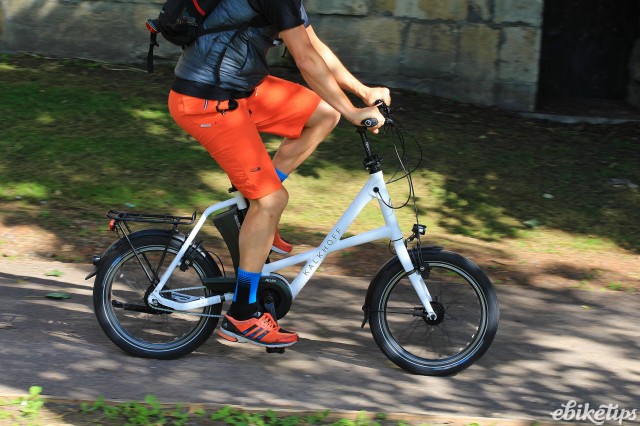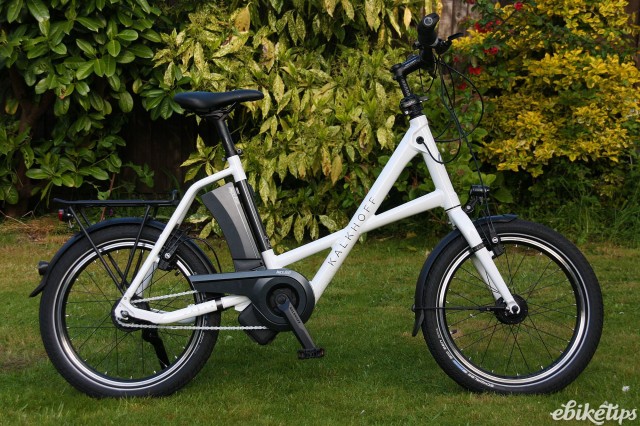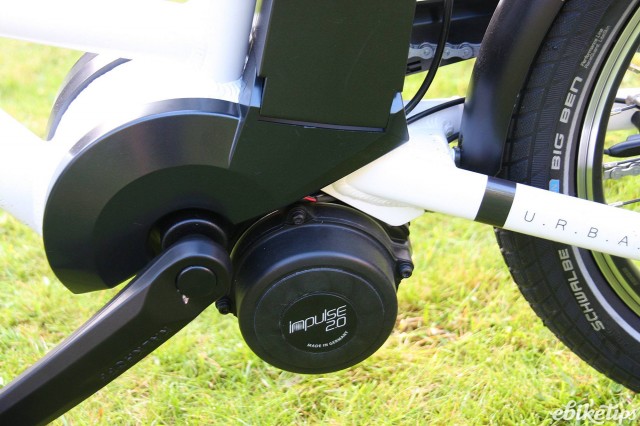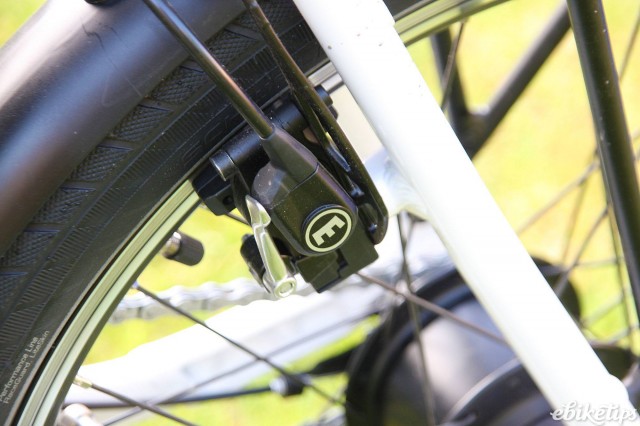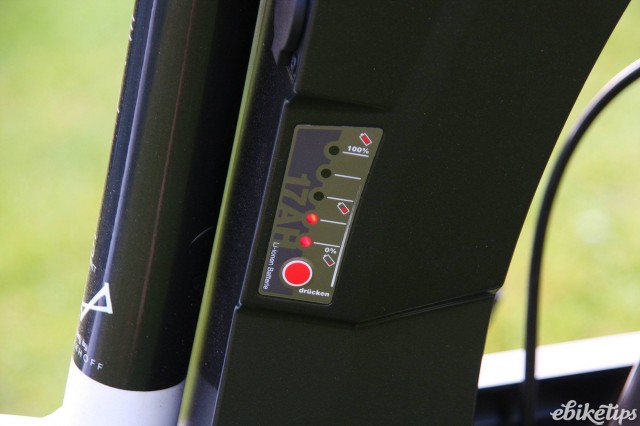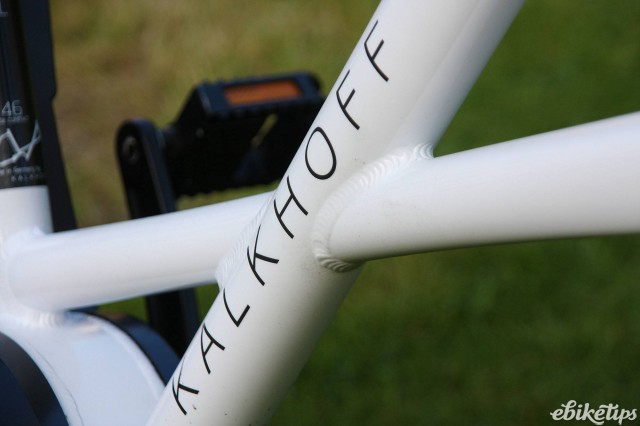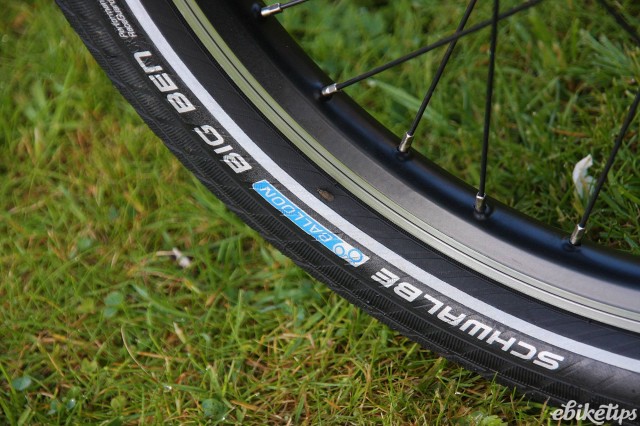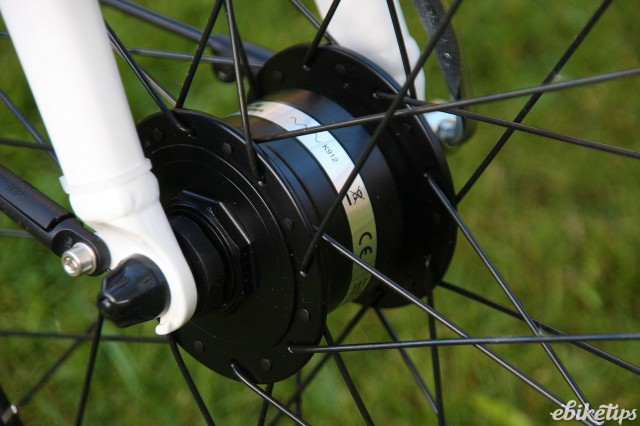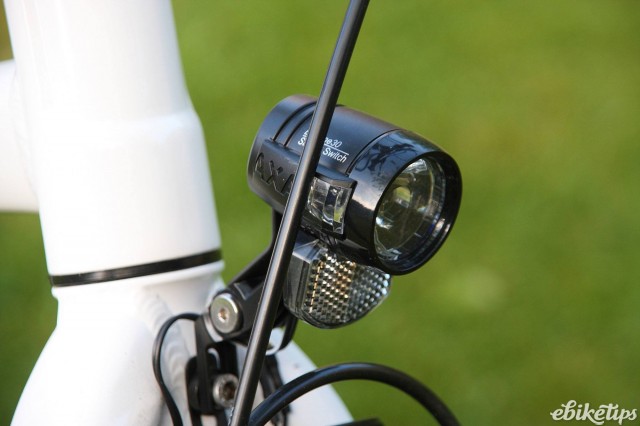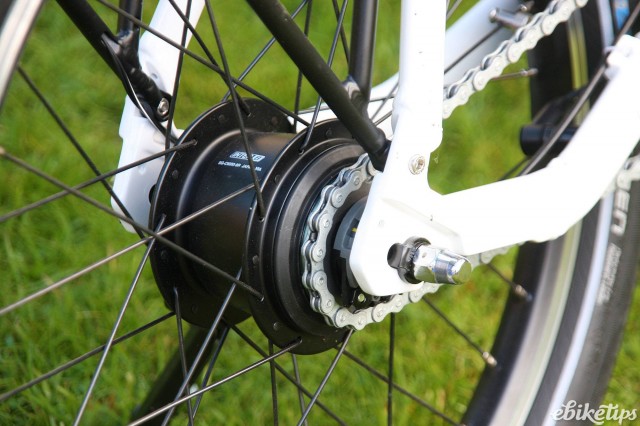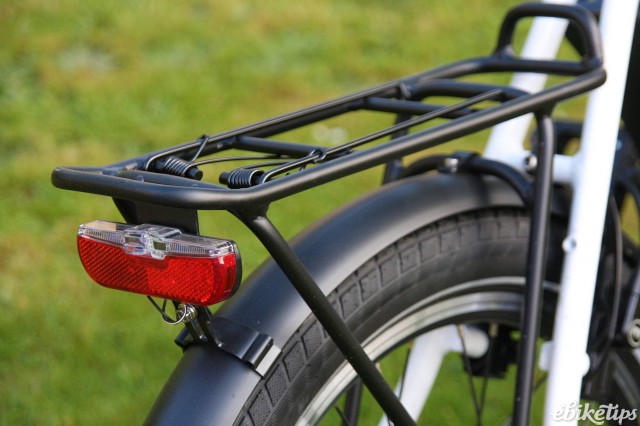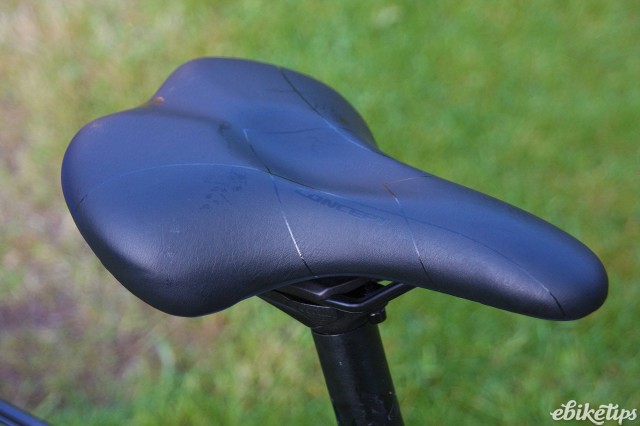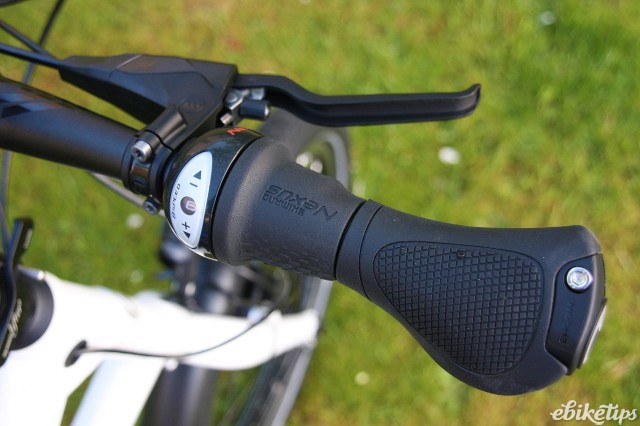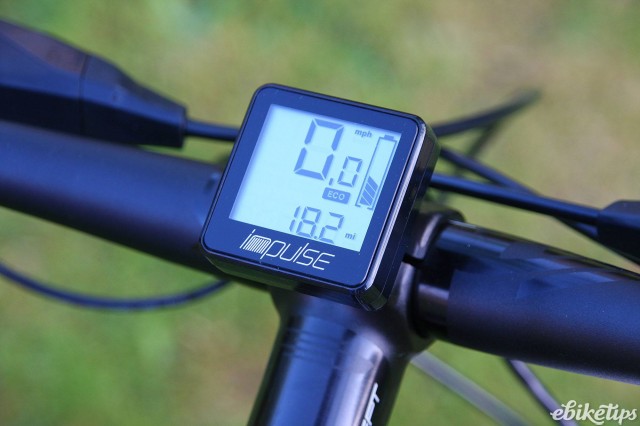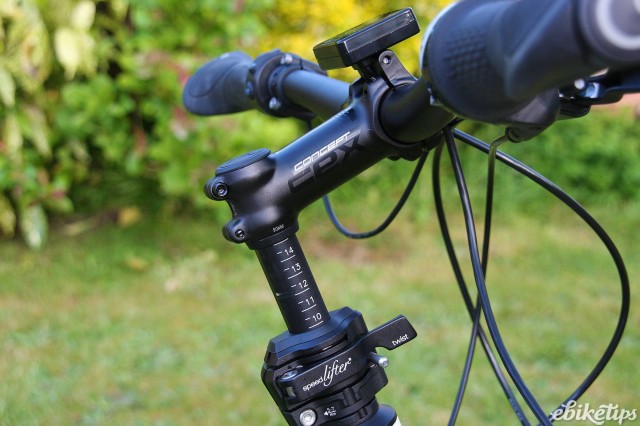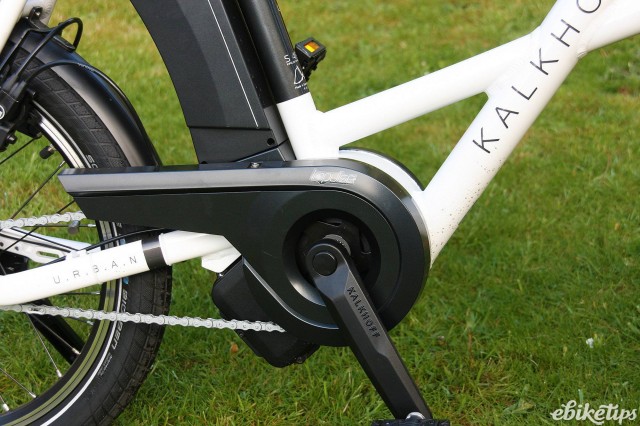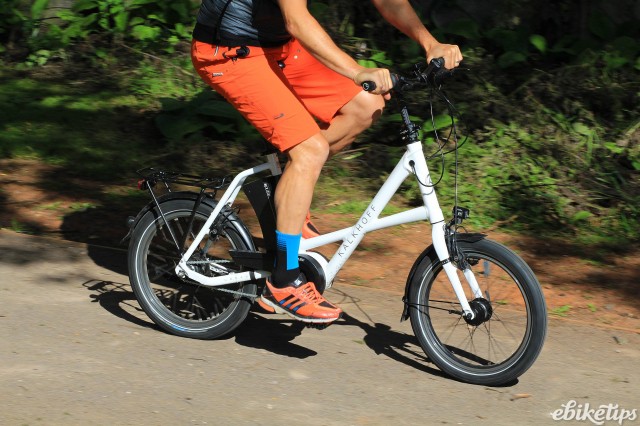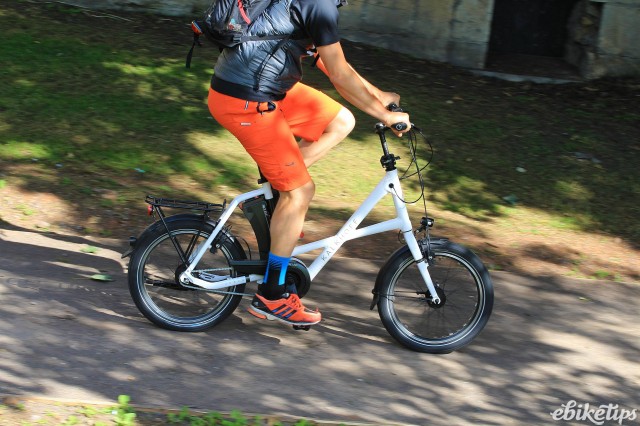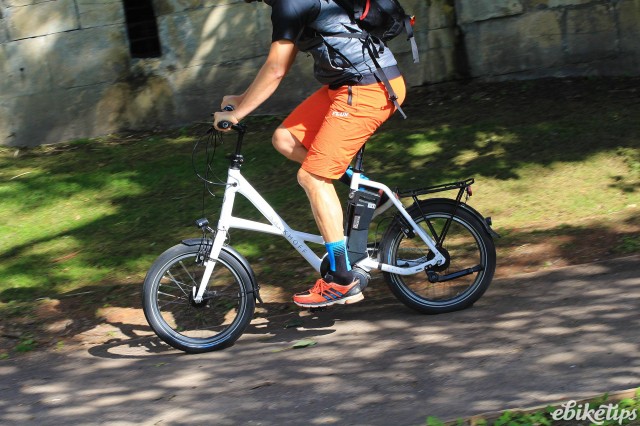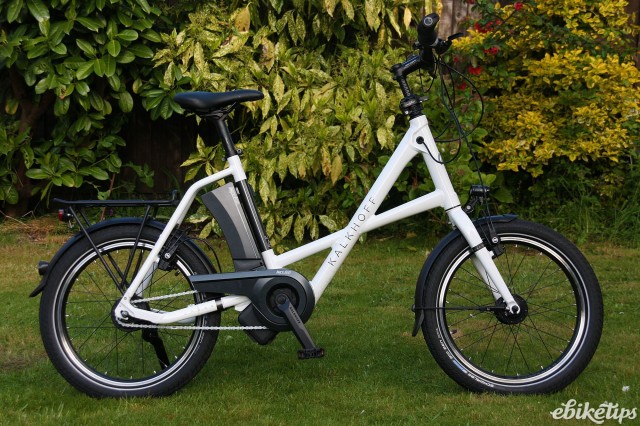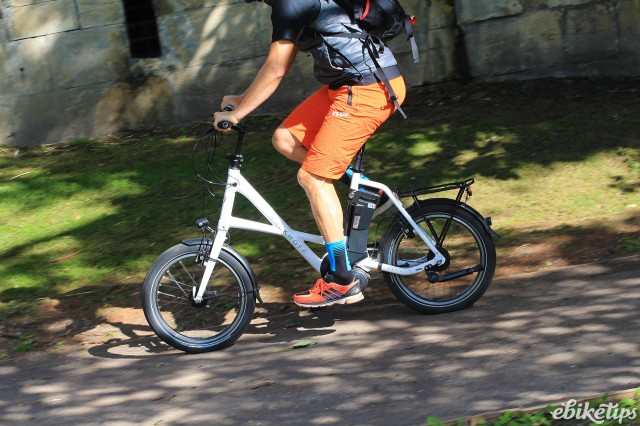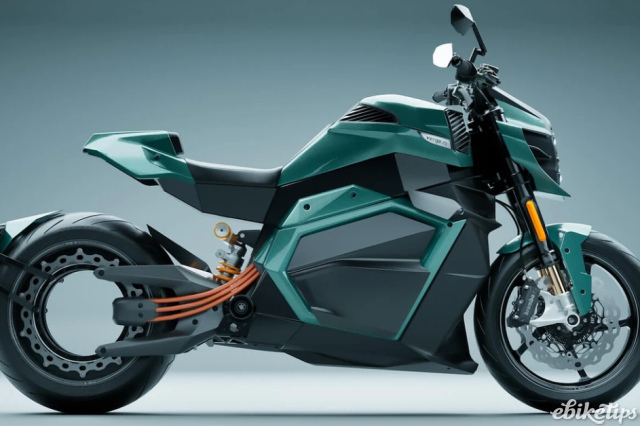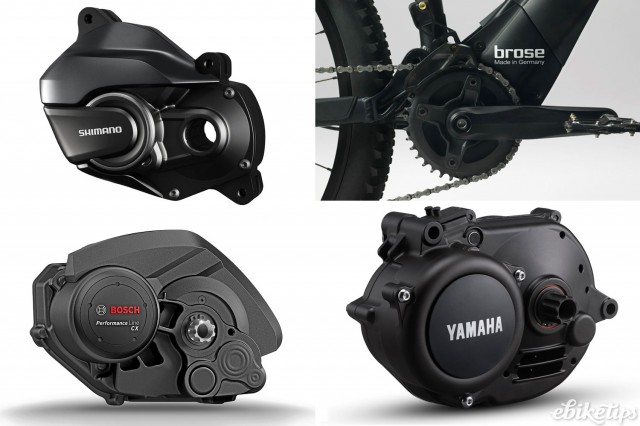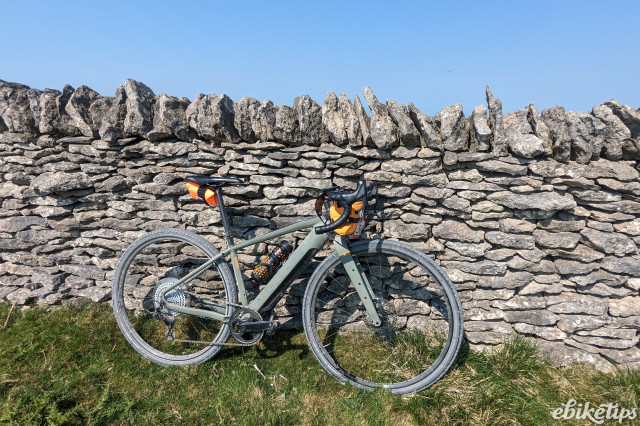Kalkhoff Sahel Compact
Overview
- Quiet and efficient motor
- Huge range from the big battery
- Folds flat for easy storage
- One size frame is a compromise for taller/shorter riders
- Shift Sensor cuts motor power for too long
If you're looking for a compact city bike with a great range and an impressive pedal assist system then the Kalkhoff Sahel Compact is one for the shortlist. It combines an easy riding style with Kalkhoff's impressive own-brand mid motor and good quality equipment for fuss-free day-to-day use.
The alloy 46cm frame uses a cruciform design at the front for a low(ish) step-through and the battery – we had a 612Wh bike, a 396Wh version is available for £200 less – sits low down behind the seat tube which makes manhandling the bike a bit easier. You get a chaincase, mudguards, a rack, kickstand and (dynamo) lighting for the full city package. Big-chamber Shwalbe Big Ben tyres offer a bit of cushioning from road imperfections and should offer decent puncture protection too. Magura HS11 hydraulic rim brakes are on hand to haul you to a stop.
Pedal assist is taken care of by the Kalkhoff Impulse 2.0 motor. It offers three levels of assistance via a handlebar remote, and there's a clear, if fairly basic, LCD display that gives you normal cycle computer functions as well as battery and power level information. For more information about the bike read our just-in story or have a look at the Kalkhoff website.
Jez says: With the centre-mounted battery and motor giving good weight distribution, combined with a fairly slack head tube angle, it's a very stable bike, even on 40mph off-camber downhills. I did find that the smaller wheel diameter impacts upon comfort over cracks and joins in the road surface. The fat 2.1" Schwalbe Big Ben tyres do a good job of isolating you from rougher tarmac surfaces but less so over bumps. They have a fairly wooden feel about them but are pretty tough.
Kalkhoff’s Impulse 2.0 mid motor performs well. When you reach the top assisted speed, the motor blends in and out rather than cutting sharply; I thought this was really well-implemented. The battery life is really impressive - Kalkhoff claims up to 180km from the 612Wh battery, which would presumably be on the flat and in the low power setting. I managed two hilly round trips to work (around 50km) on maximum assistance which still left one bar showing on the battery display. That’s very good in full power mode.
The bar-mounted display is relatively simple, showing current speed, total distance and battery state. I quite like the display showing how much assistance I'm getting on the Bosch head units, but some may prefer the simpler approach here. The electric cabling to the head unit is kind of messy - a long cable hanging out of the top of the downtube that catches on things. I tried to push more of it into the tube but it didn't seem possible.
The 8 speed Nexus hub gear works well enough although it's not the lightest action on the Gripshift control. It's not geared to encourage you to try and go any faster than the 15.5mph up to which you'll have any assistance - any faster than this and you'll be spinning rather quickly.
The HS11 hydraulic rim brakes from Magura are plenty powerful even on the smaller wheels here, with the long levers enough to get four fingers on.
The low-mounted rack at the rear worked well with a standard sized pannier - I was able to find a position where there was no interference with my heels. With the seat-post fully extended I was sat too low - there's only one frame size and it's a bit too small for me. On short journeys this isn't too much of an issue.
Kalkhoff is proud of its Shift Sensor technology, where the motor drops the power when you change gear, to make for smoother changes. I like the idea in principle, but I think it drops out for too long, such that on steeper hills you lose all your momentum when changing gear.
Jez Ash spends his days making robots that drive cars but is happiest when on two wheels. His roots are in mountain biking but he spends more time nowadays on the road, occasionally racing but more often just riding
Dave says: the Impulse mid motor has been around a long time and the 2.0 version is a well-made unit with a good range of assistance levels. In terms of feel it's a motor that rewards a bit of rider input; mid motors are always a balance of torque and cadence sensing and the Kalkhoff seems to be pretty torque-oriented. If you try and spin up a hill it's maybe not as effective as a Bosch motor at keeping you going with the minimum of effort, but put a bit of leg power in and you'll fly. For that reason it's a system that probably suits riders who want to engage with the bike a bit more.
The 612Wh battery is about as big as you'll find on any e-bike at the moment, unless you've managed to get hold of one of Bosch's new dual battery systems. The big battery gives the Sahel Compact a huge range; I managed a fairly flat 30km ride back from Bristol in (mostly) the lowest assistance mode on about 20% of the battery, suggesting that rides well over 100km would be possible even on rolling terrain. In fact the battery capacity is probably overkill for many; there's a 396Wh battery option which will save you £200 and for most city riding that will be more than enough.
Gearing is well-matched to the power curve, in that the the top gear of the 8-speed Nexus hub is good for speeds not much over 15mph. On an e-bike you tend to surf the assistance on the flat, hovering around the maximum assist speed, and the Impulse 2.0 motor is good at that, cutting in and out without feeling choppy.
Ride position is fairly upright with a shortish reach. The Sahel Compact is a one-size-fits-all bike and there's a long seatpost and a Speedlifter stem to allow you to tweak your position. At 1.89m I'm at the top end of people it would fit, and I could have done with an extra couple of centimetres of seatpost. On the flip side, if you're a smaller rider you may find the reach of the bike a bit long; one-size bikes are always a compromise at either end but this bike will fit most folks fine. The cross-tubed mainframe gives a fairly low step-through while still maintaining the modern, urban look of the bike. I didn't notice any issues with frame stiffness during testing.
The compact nature of a 20"-wheeled bike means that it doesn't take up as much space. You wouldn't necessarily think it would make that much difference, but in daily use it's very noticeable how it'll fit into spaces that you wouldn't get a standard-wheeled bike into. The Sahel Compact also has another neat space-reducing feature: the bars can be flipped around sideways so it can be more easily stored in a hallway, or any confined space. If you're a bit short of room then it's certainly a bike to look at.
